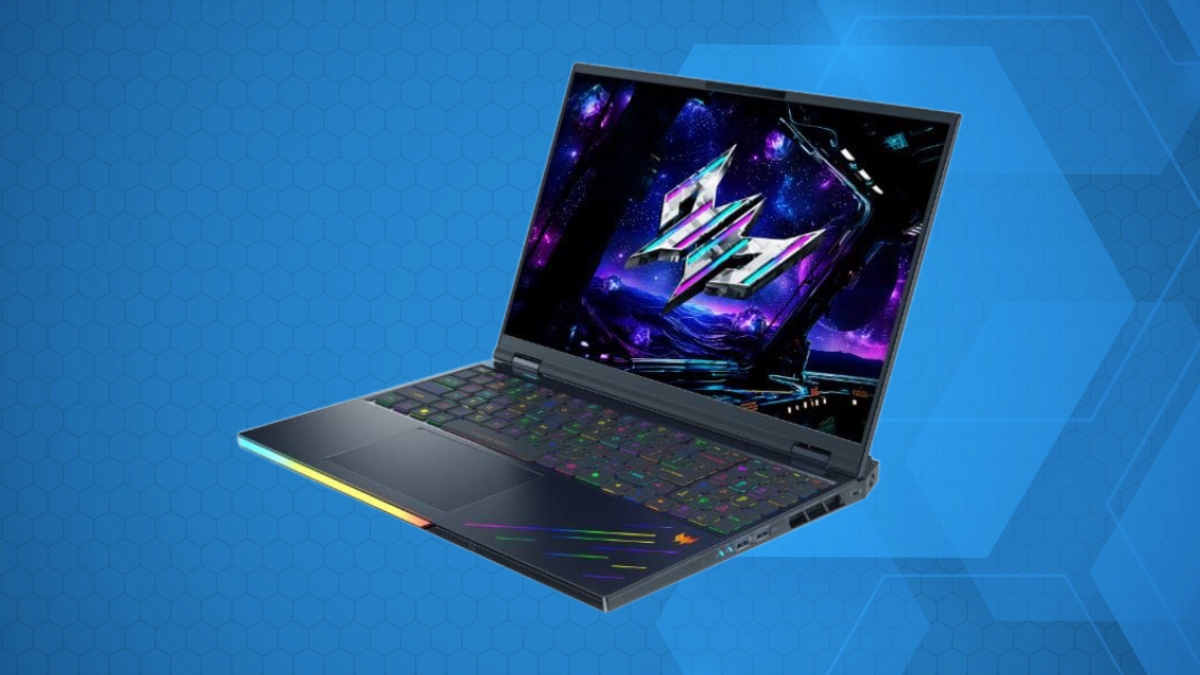RTX 5070 laptop benchmarks appear online, here’s how the 8GB GPU compares to the rest

Table of Contents
It has been a few weeks since we finally got to see the first RTX 5090 laptop reviews, followed by news that laptop reviewers were being delayed by Nvidia’s recent driver issues. With that in mind, there is still very little information about the RTX 5070 laptop GPU performance directly from hardware reviewers.
5070 laptops are not widely available for sale yet; the 5070 Ti upwards will be what you’ll currently find across the web’s most popular retailers. However, we’ve just gotten our first look at performance stats thanks to benchmarks uploaded online. Considering the 5070’s laptop GPU only has 8GB of VRAM, we’re keen to see how well it performs versus the 5070 Ti laptop GPU, as well as the desktop versions.
Prime Day is finally here! Find all the biggest tech and PC deals below.
- Sapphire 11348-03-20G Pulse AMD Radeon™ RX 9070 XT Was $779 Now $739
- AMD Ryzen 7 7800X3D 8-Core, 16-Thread Desktop Processor Was $449 Now $341
- ASUS RTX™ 5060 OC Edition Graphics Card Was $379 Now $339
- LG 77-Inch Class OLED evo AI 4K C5 Series Smart TV Was $3,696 Now $2,796
- Intel® Core™ i7-14700K New Gaming Desktop Was $320.99 Now $274
- Lexar 2TB NM1090 w/HeatSink SSD PCIe Gen5x4 NVMe M.2 Was $281.97 Now $214.98
- Apple Watch Series 10 GPS + Cellular 42mm case Smartwatch Was $499.99 Now $379.99
- ASUS ROG Strix G16 (2025) 16" FHD, RTX 5060 gaming laptop Was $1,499.99 Now $1,274.99
- Apple iPad mini (A17 Pro): Apple Intelligence Was $499.99 Now $379.99
*Prices and savings subject to change. Click through to get the current prices.
RTX 5070 laptops appear on Geekbench
We’ve just spotted some RTX 5070 laptop entries uploaded to Geekbench, all tested in OpenCL on Geekbench 6.1.0. There are three listings to compare (see below), with two configurations between them.
There are two models that feature an i9-13900HX processor, while another features the i7-14650HX. For the sake of seeing the very best graphics potential, we’ll be comparing the best RTX 5070 laptop GPU results with the current scores listed on Geekbench’s OpenCL leaderboard.
| GPU | OpenCL score |
|---|---|
| RTX 5070 Ti (16 GB) | 228,554 |
| RTX 5070 (12 GB) | 186,258 |
| RTX 4070 (12 GB) | 168,040 |
| RTX 5070 Ti Laptop (12 GB) | 156,300 |
| RTX 5070 Laptop (8 GB) | 136,800 |
| RTX 4070 Laptop (8 GB) | 109,068 |
Based on the OpenCL scores, none of the xx70 series laptops can match the same level of performance as you’ll find on the desktop cards, even from last gen. The 5070 laptops (and upwards) will at least outperform a desktop RTX 3070, which scores 127,856 in comparison. In any case, you shouldn’t be too concerned about comparing laptop and desktop variants; this disparity is normal. The limited 8GB VRAM on the 5070 laptop does, however, feel like a letdown, especially with discourse around the 8GB 5060 Ti desktop card.
You should keep in mind that this is an isolated OpenCL benchmark, so we’re keen to see how well the 8GB GPU holds in in real-world gaming scenarios, especially at 1440p with higher texture settings. Modern AAA titles have been getting increasingly memory hungry, with the recent Last of Us Part 2 remaster being another example.

